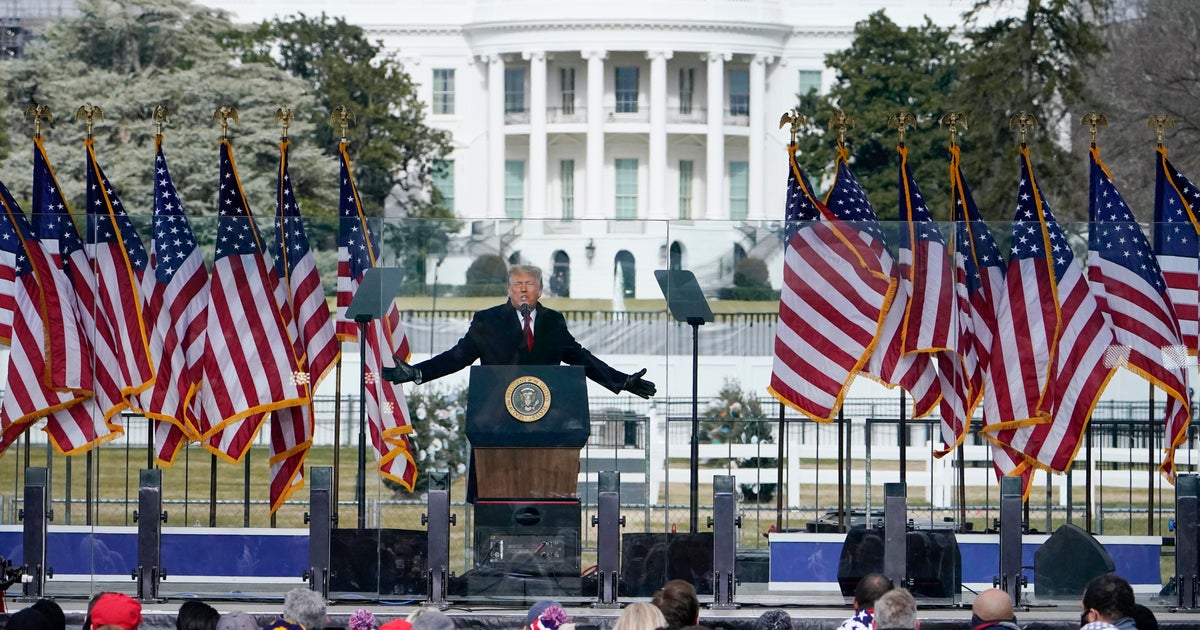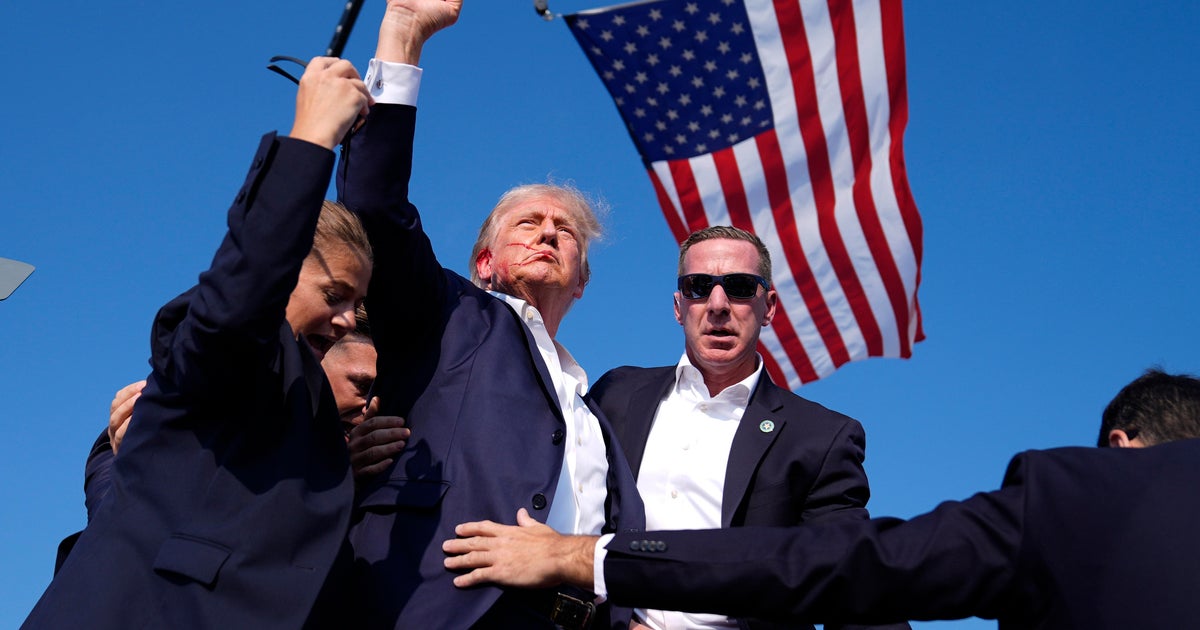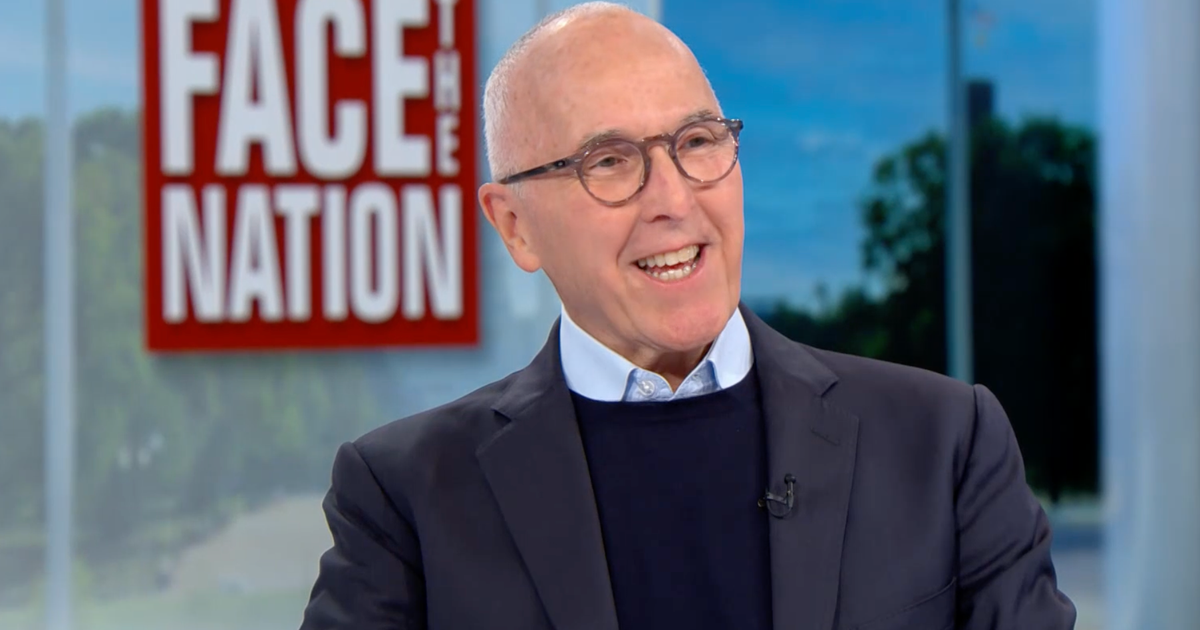Supreme Court rejects Trump request to shield release of records to January 6 committee

Washington — The Supreme Court on Wednesday spurned a request from former President Donald Trump to block the release of documents from the Trump White House to the House select committee investigating the January 6 assault on the U.S. Capitol.
The order from the high court clears the way for the National Archives to turn over to House investigators records they requested related to the breach of the Capitol by scores of Trump’s supporters. President Biden waived executive privilege over the documents.
Only Justice Clarence Thomas noted that he would have granted Trump’s request.
Trump asked the high court last month to stop the transfer of records to the select committee after a federal appeals court in the District of Columbia rejected his efforts to shield the documents from lawmakers.
Jacquelyn Martin / AP
At issue in the legal fight between the former president and the House select committee are reams of records related to the events of January 6, including presidential diaries, visitor logs, handwritten notes from then-White House chief of staff Mark Meadows, binders from then-White House press secretary Kayleigh McEnany, and a draft executive order on election integrity, according to a filing from the National Archives.
Trump asserted executive privilege over more than 750 pages of these documents, which are at the crux of his lawsuit against the National Archives and select committee. But Mr. Biden declined to uphold the former president’s claims of executive privilege over the documents sought by the panel, and Trump filed suit in October to prevent their disclosure.
In an unsigned opinion, the Supreme Court said “the questions whether and in what circumstances a former president may obtain a court order preventing disclosure of privileged records from his tenure in office, in the face of a determination by the incumbent president to waive the privilege, are unprecedented and raise serious and substantial concerns.”
Still, the high court noted that because the U.S. Court of Appeals for the District of Columbia Circuit found Trump’s privilege clams would have failed even if he were the incumbent president, “his status as a former president necessarily made no difference to the court’s decision.”
Justice Brett Kavanaugh wrote in a separate statement respecting the court’s decision that he believes a former president should be able to successfully shield communications from his presidency, even if the sitting president does not support the privilege claim.
“Concluding otherwise would eviscerate the executive privilege for presidential communications,” Kavanaugh, who worked in the White House under President George W. Bush, warned.
He further said there would be “severe” consequence for the presidency if presidents and White House advisers thought their privileged communications could be released when the president left office.
In asking the Supreme Court to reverse the lower court rulings against the former president and stop the National Archives from handing the records over to the committee Trump’s attorneys argued investigators’ request is “strikingly broad” and “untethered from any valid legislative purpose.”
“While the protections of executive privilege and restrictions on access to presidential records are qualified, it is critical that future presidents and their advisers understand the contours and perimeters of that privilege — and its exceptions — after the conclusion of a presidential term,” they argued. “Otherwise, the deliberative process of advising presidents will be chilled, as advisers will doubtless understand the audience of their deliberations is not simply the president in whose administration they serve but also Congress and their political rivals. The frankness of their advice will necessarily be chilled — to the nation’s detriment.”
But lawyers for the House select committee said in a filing that involvement by the Supreme Court would “delay a co-equal branch’s urgent investigation into an unprecedented assault on Congress itself” and warned halting the release of the documents, even temporarily, “would result in an unprecedented intrusion by this court into the ongoing process of accommodation between the legislative and executive branches.
“It would cause irreparable harm to the select committee by denying it the records it urgently needs to inform its ongoing investigation, including upcoming interviews of scores of witnesses,” they argued. “Obtaining this information promptly is necessary to fulfill the select committee’s responsibility to understand the events of January 6, and recommend timely legislative changes designed to ensure that those events never recur.”
The January 6 select committee has requested documents and testimony from a slew of White House aides, Trump allies, at least two members of Congress and organizers of the January 6 rally outside the White House. Some of the requests have spurned numerous legal challenges, as former White House aides have refused to turn over the documents, citing the former president’s claims of executive privilege.
Meadows last month filed a lawsuit in federal court seeking to nullify subpoenas issued by the House committee for testimony and phone records, as did Michael Flynn, Trump’s former national security adviser. Both Meadows and Flynn claimed the subpoenas issued by the select committee are overbroad and lack a legislative purpose.
Trump himself has looked to the Supreme Court in past efforts to shield his financial records from congressional investigators and the Manhattan district attorney. The former president appointed three justices to the high court, expanding its conservative majority to 6-3.
Download our Free App
For Breaking News & Analysis Download the Free CBS News app
World News || Latest News || U.S. News
Source link




